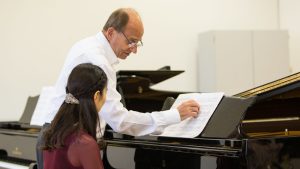Piano Forum
 |
Master Teacher Christopher Elton – Never Ending Impetus With 50 years at the Royal Academy of Music and an international teaching career, Professor Christopher Elton has gained unique experience in how to coach accomplished artists. In this unique interview for Piano Street, Elton shares his insights and views on the big perspective. Read more >> |
Pages: [1] Go Down
Pages: [1] Go Up
For more information about this topic, click search below!
 Topic: Ear Training
Topic: Ear Training